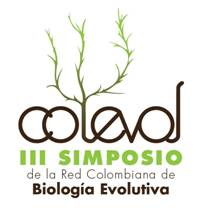Guest post from Henry
Arenas-Castro, coordinator of the ColEvol Network, Colombia
It can be a little unusual to read about Colombia
and science together in the same paper, report or news. When this does happen
the research is often dominated by biofuels and by the development of a
tropical vaccines. To read about Colombian evolutionary biology is an unusual
thing. Taking into account that the study of the  processes leading to
processes leading to
biodiversity is one of the major goals of the evolutionary biology field, why is it that Colombian
research does not have a visible impact on worldwide scientific production
concerning this subject? The reason certainly isn’t the lack of
biodiversity, given that Colombia is one of the richest countries in this
concern, reaching the appellative of “megabiodiverse”, but rather the budget allocated by the Colombian government to science. Although neighboring countries
like Brazil allocates 1.3% of its GDP to science, Colombian research receives 0.16%,
and in the best cases scenario this figure will reach 0.5% in the next few years,
based on the current legislation.
We aren’t going to say that Colombia doesn’t
produce strong science; the country has a growing number of highly qualified
researchers, although many of them study abroad. The national government is now
looking to address this and increase the number of PhDs who graduate in Colombia from less
than 200 to more than 500 per year. Additionally, many Colombian researchers
are faculty leaders in their respective fields around the world, this is the
best evidence of the quality and skills of scientists formed in Colombia. Despite the fact that the area of evolutionary biology research represented just 171 of the 28,290 Colombian publications indexed over the last decade, it is becoming a trend and a growing field in the Colombian science agenda. To
this end, the Colombian Network for Evolutionary Biology (ColEvol) was formed and
continues to grow.
ColEvol is an emerging initiative that aims to promote
academic interaction between Colombian researchers interested in all areas of
evolutionary biology. The organization aims to create a network of researchers
where both well-established and young scientists can find information about
academic interests of participants and can establish contacts among them.
ColEvol has consolidated the reference frame for the development of the evolutionary
biology field in Colombia and hopes to eventually result in the creation of the
Colombian Society for Evolutionary Biology. As part of its activities, ColEvol
has carried out three Symposiums in Colombia: the first in 2008 at University
of the Andes (Bogotá), the second at University of Valle and ICESI (Cali) in
2009 and the third symposium was hosted by the University of Antioquia and CES at
the Explora Park Science Museum, Medellín on July 28th and 29th
this year.
The main objective of III Symposium ColEvol was to assert the use of an
academic venue for the presentation of research projects by undergraduate and
postgraduate students and for stimulating interactions between the students and
researchers interested in evolutionary biology in Colombia. The event was
attended by 300 students and researchers from all Colombian regions and had
more than 40 oral and poster presentations about research projects by students
in diverse areas of evolutionary biology, reinforcing the perception about the
great interest and capabilities of the Colombian scientific community. Keynote presentations by three
international and three national speakers were also heard. All participants received free electronic access to both Evolution
and Journal of Evolutionary Biology,
of the Society for the Study of Evolution (SSE) and European Society for
Evolutionary Biology respectively for 2011. Open access to research is a great
aid to scientific developments.
To summarize, Colombian researchers have taken on the challenge of promoting their evolutionary biology research armed with a promising tool – ColEvol, a network that promotes information share.
Latest posts by Tara Cronin (see all)
- Post-genomic outlooks on neuropsychiatric disease - 11th November 2011
- ASBCB supports open access in the development of bioinformatics and computational biology in Africa - 12th September 2011
- Evolutionary biology in Colombia: challenges and perspectives - 6th September 2011
Comments